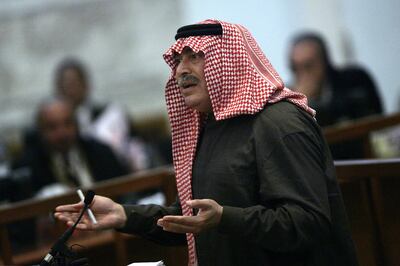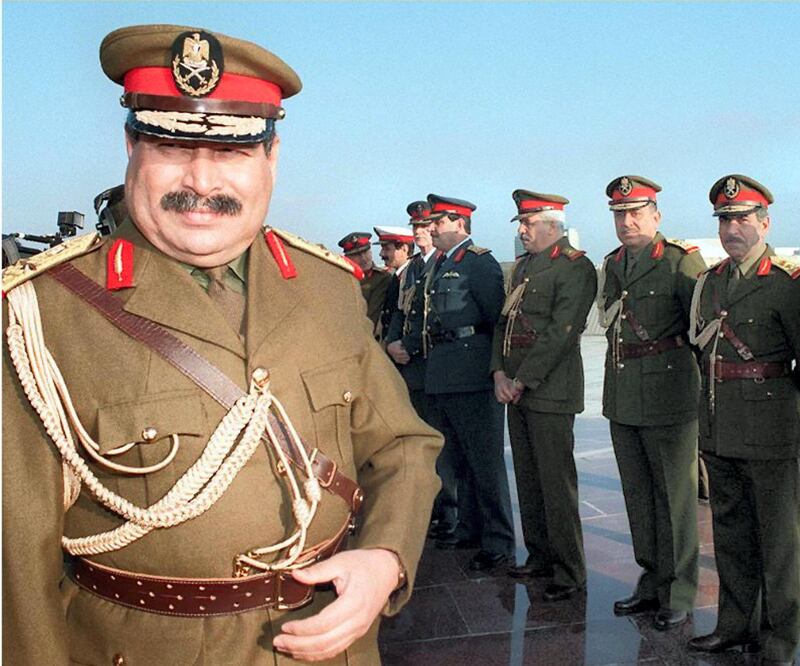Toppled dictator Saddam Hussein’s former top official has been transferred to a prison in Baghdad following reports that his heath is “deteriorating”.
Sultan Hashim Ahmed, 74, was condemned to death in 2007 for serving as defence minister during the dictator’s brutal era but the country’s high court has not ratified his sentencing.
General Ahmed, detained in Nasiriyah prison since his surrender to US forces in 2003, was moved to a prison in Baghdad on Sunday, Al Sumeria TV reported.
The conditions in the detention are "very bad", Badia Araf, the lawyer representing Gen Ahmed told AFP, adding that his health was worsening.
Earlier this month, parliament speaker Salim Al Jubouri appealed to Iraqi President Fuad Masum and the country's highest judicial authorities for an "exceptional pardon" for General Ahmed in the run-up to the Muslim holy month of Ramadan.
Mr Al Jubouri stressed in a letter that he had previously received "numerous requests from dignitaries in Mosul", the general's home city in northern Iraq, to spare him from the death sentence.
Although Gen Ahmed is accused by powerful Iraqis over his involvement in the Iran-Iraq war, he is also valued for that same role by Iraqi nationalists.
He is regarded by some as a patriot who fought for his country rather than a scoundrel who allied with a ruthless dictator.

Former Iraqi lawmaker, Hassan Al Alawi, described the general as a "symbol of the Iraqi army".
"He a man of integrity and he is still admired by Iraqi soldiers," Mr Al Alawi told reporters.
Reports suggest that as deputy chief of staff of the Iraqi army, Gen Ahmed convinced US General Norman Schwarzkopf to allow Iraqi forces to use their helicopters in the no-fly zone following Iraq’s retreat from Kuwait in 1991.
It was alleged that those same helicopters were used to slaughter Shiites in the south and Kurds in the north in response to a series of uprisings.
Gen Ahmed is number 27 on America’s list of 55 most wanted members of Saddam's regime. The cards were given to US troops when they invaded Iraq in 2003.
Of the 55 people, six were executed, six were killed in combat, eight died in captivity, five are on the run, and 16 were freed by Washington before US forces pulled out of Iraq in 2011.
The latest fugitive to be detained was Abdel Baqi Abdel Karim Abdallah, a top Baath party official who was arrested in June 2015 in Kirkuk.
__________
Read more:
Iraqi supreme court rejects appeal to cancel election results
Love and politics in Baghdad: The Iraqi female writers breaking taboos
__________






